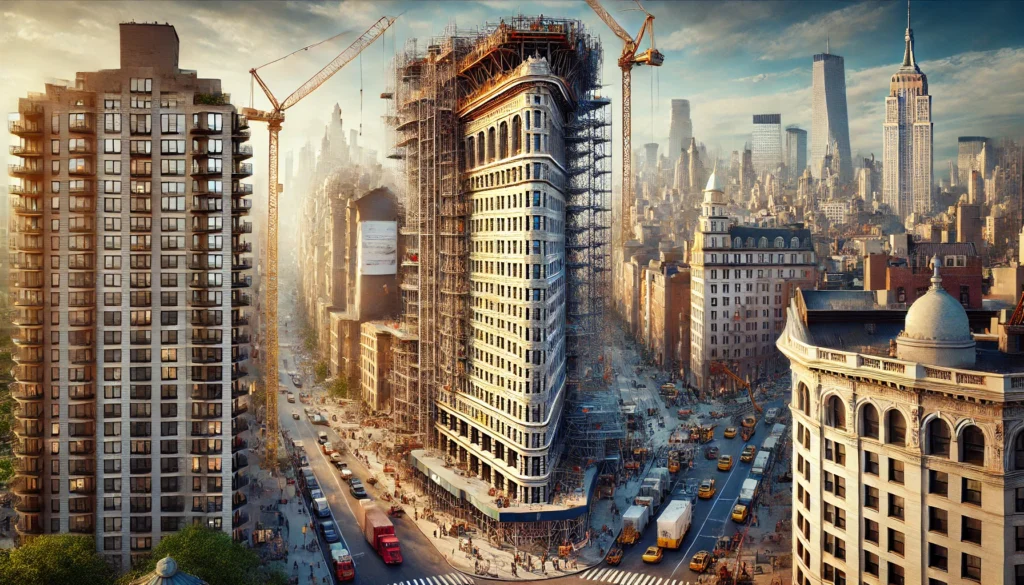Flatiron Building Conversion: A New Era for the Iconic Landmark

The Brodsky Organization is not leaving anything to chance as they move forward with plans to convert the vacant office space in the Flatiron Building into luxury residential units. As part of their efforts, they are seeking zoning approvals to facilitate the transformation, potentially turning this historic structure into high-end condos.
One of the key requests Brodsky has put forth is a waiver of a rule that mandates at least half of the building’s floor space remain nonresidential. The “City of Yes for Housing Opportunity” (COY-HO) initiative, which the developer references in planning documents, seeks to eliminate such requirements, providing an opportunity to increase residential development in the city.
However, Brodsky’s representative emphasized the project’s urgency during a City Planning Commission hearing, citing that the developer cannot afford to wait for potential City Council changes to the City of Yes. The commission is expected to vote on a text amendment soon, after which the matter will head to the City Council for final approval.
Plans indicate that the Flatiron Building Conversion could yield up to 60 residential units, though current projections suggest that 39 apartments will be constructed across the second through 22nd floors, with no more than two units per floor. Due to the Flatiron Building’s distinctive layout, it would be difficult to fit more than two apartments per floor, according to the project description.
In related news, the City Council is also reviewing Speaker Adrienne Adams’ proposal that would allocate a percentage of city subsidies specifically for homeownership projects. This ties into the broader City of Yes plan to legalize accessory dwelling units (ADUs), which could provide homeowners with additional income or living space for family members, such as elderly relatives.
A spokesperson for Adams pointed out her previous support for legalizing basement apartments, emphasizing the need to make them safe and provide affordable housing options. The ADU proposal, along with other zoning changes, is expected to be formally reviewed once it reaches the City Council.
In other city planning developments, Steve Cohen’s team has initiated the land use review process for a proposed casino near Citi Field, despite requiring additional legislative support for parkland alienation to move forward. The future of this project remains uncertain pending state legislative action.
This shift in the use of iconic New York properties reflects the broader trends shaping the city’s real estate landscape as developers adapt to meet both housing demands and evolving market conditions.


